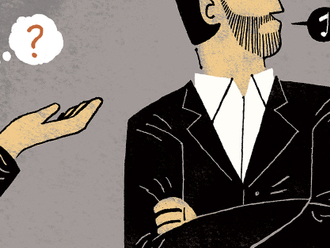I was startled when my friend VG gave me this piece of advice, ‘‘If ever you lose your mobile phone do not take your complaint to the police. Not only you may never be able to retrieve it, you may land yourself in difficulty. So, just forget about it and quietly buy another one’’.
‘‘Are you serious?’’ I asked him to make sure that I had heard him correctly. “Yeah, I am’’ he retorted quickly. Asked for the reason for such a ‘sane’ advice, he narrated his experience after he lost his smart phone.
Being a law abiding citizen, a robust VG drove to the police station and gave vent to his ire over the theft of his “lovely” mobile phone. He was softly advised not to call it theft/pinching (obviously because that would add one more to the cases of crime in the area).
‘’Say, it slipped out of your pocket somewhere or you misplaced it ’’ VG was politely told.
However, my friend argued it out and got a case of theft registered. And that heralded his woes. In addition to telephonic inquiries, every now and then some cop would drop in at his abode even at odd hours as part of the investigation process.
In a country where arrival of even well-intentioned policeman at a house for some good reason raises eyebrows and elicits all kinds of uncomfortable queries in the neighbourhood, the purported investigation started telling upon his nerves.
He had had a surfeit of it, yet he took it sportingly. VG drew satisfaction from the fact that as a conscientious law-abiding citizen he had done his duty by reporting the loss, albeit a minor one. But in his calmer moments, it dawned upon him that retrieving the smart phone would be well nigh impossible in a place where these pocket size gadgets outnumber the population.
It is a well known fact that in this age of cell phone revolution, practically every person, irrespective of his social status, carries a mobile phone today. And many people own more than one. There would be no family where the husband, wife and kids do not have their own phone or phones. Try to estimate the number of mobile phones in use and your head will start reeling.
To be fair to the police force, in such a scenario, finding out a stolen mobile would be as hazardous as looking for a needle in a haystack. While IT (information technology) and its by-products have come as a boon, they have undoubtedly their baneful aspects also.
Without further straying away from the theme, I may point out that my friend VG finally decided to forget about his smart phone and likewise wanted the cops to forget about the ‘theft’. He took back his complaint saying he had misplaced it and found it and that now he had no issue.
That brought the matter to an end. The daytime and occasionally nocturnal visits by the man in khaki stopped. Both sides heaved a sigh of relief. VG put the lid on the issue by acquiring a new mobile and buying peace for himself.
The hard fact remains that the existing police force is far too inadequate to serve the large population. It is true that the force is overburdened and works under tremendous pressure. And admittedly, as a large population means more crime, overcrowding everywhere, more accidents, prolonged investigation and years of litigation, I don’t see the light at the end of the tunnel in near future.
Things could have become a bit easy but for the fact that the political class, which could make the scanty police force available for the people whom it claims to serve, is itself extensively utilising the force for imagined threats. It is more a status symbol. A small time politician often gets three to six or more cops to give him cover to impress onlookers.
There is plenty of talk of ending the VIP culture but it is not seen on the ground. At many places there is ban on red and blue beacon lights on the automobiles that gave to the person sitting inside a false or inflated sense of being a VIP. Today, even the last man standing in the queue of VIPs seems to be squirming on having lost that blue or red beacon.
The top officials of the British Raj who ruled us and the feudal lords, zamindars, nawabs, rajahs and maharajahs of yesteryears have gone but the legacy they have left has coloured our thinking and vision so much that we are still unable to come out of it.
Theoretically, we are all equals but in practice we are not. There is lot of talk of ensuring a casteless society and removing economic disparities but in practice we are only perpetuating and heavily depending on caste system in every respect and doing little to narrow down economic disparities.
Lalit Raizada is a journalist based in India.








